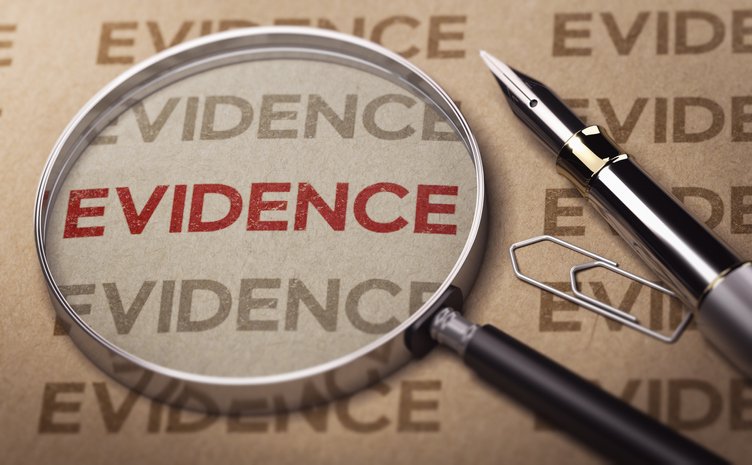Evidence: Article 120 UCMJ Cases
In Article 120 UCMJ cases, the most critical evidence often involves witness testimony, forensic evidence, and any documentation that supports the allegations. Sexual assault cases can be challenging, and the prosecution typically relies on a combination of the factors.
Factors in Article 120 UCMJ Cases
- Victim Testimony: The statements and testimony of the alleged victim are crucial. This includes the details of the incident, the identification of the accused, and any relevant circumstances.
- Forensic Evidence: Physical evidence such as DNA, medical examinations, and any other forensic findings can be critical in establishing a case. Forensic evidence can help link the accused to the alleged crime.
- Witness Testimony: Statements from individuals who may have witnessed the Article 120 UCMJ incident or observed behavior relevant to the case can play a significant role. This can include fellow service members, friends, or others who were present at the time.
- Communication and Documentation: Any relevant communications, such as text messages, emails, or other documented interactions between the parties involved, can be used as evidence.
- Military Investigation Reports: The results of official military investigations, including findings from the Criminal Investigation Division (CID) or equivalent, are important. These reports often contain details of the investigation process and any evidence gathered.
Can a person be convicted by Witness Testimony Alone?
- The sufficiency of witness testimony to secure a conviction under Article 120 UCMJ (Uniform Code of Military Justice) depends on various factors, and it is ultimately determined by the court-martial proceedings. The prosecution needs to present a case that convinces the factfinder (judge or jury) beyond a reasonable doubt. Here are some considerations:
- Credibility of witnesses: The credibility of the witnesses is crucial. If the witnesses are deemed credible and their testimony is consistent and compelling, it can significantly contribute to securing a conviction.
- Corroboration: While witness testimony alone can be sufficient, corroboration with other evidence, such as forensic evidence, documentation, or additional witnesses, can strengthen the case. Corroborating evidence adds weight to the prosecution’s argument.
- Details and Consistency: the details provided by witnesses and the consistency of their statements are important. A clear and consistent account of the events can enhance the credibility of the testimony.
- Cross-examination: the defense has the opportunity to cross-examine the witnesses. If the defense is unable to discredit the witnesses or reveal inconsistencies during cross-examination, it can support the prosecution’s case.
- Number of Witnesses: The number of witnesses can also impact the case. Multiple witnesses providing consistent testimony may strengthen the prosecution’s case.
How does an experienced defense attorney impeach the credibility of witnesses?
- Experienced Defense attorneys can use various techniques to impeach the credibility of witnesses during legal proceedings. Impeachment aims to cast doubt on the reliability and truthfulness of a witness’s testimony. Here are some common methods:
- Prior inconsistent statements. If a witness has made statements in the past that are inconsistent with their current testimony, the defense attorney may bring up these prior statements to challenge the credibility of the witness.
- Bias or Motive to Lie: The defense may argue that the witness has a bias or motive to lie, presenting a potential reason for the witness to provide false or misleading testimony. This could include personal relationships, financial interests, or other factors that may influence the witness’s honesty.
- Character for Untruthfulness: The defense may attempt to introduce evidence of the witness’s reputation for untruthfulness or dishonesty. This could involve presenting evidence of the witness’s past behavior that suggests a lack of credibility.
- Lack of Personal Knowledge: If the witness’s testimony is based on speculation or lack of personal knowledge about the events in question, the defense may challenge the reliability of their statements.
- Inadequate Perception or Memory: Defense attorneys may question a witness’s ability to accurately perceive or remember events, especially if there are inconsistencies in their account or if the events occurred under challenging circumstances.
- Use of Prior Convictions: In some cases, the defense may attempt to introduce evidence of the witness’s prior criminal convictions to argue that the witness has a propensity for dishonesty. Most active-duty service members who are witnesses wouldn’t be on active duty if they had convictions, so this wouldn’t likely be a scenario in this case.
- Cross-examination Techniques: Through effective cross-examination, defense attorneys can highlight inconsistencies, discrepancies, or weaknesses in the witness’s testimony. This may involve asking pointed questions to elicit favorable responses for the defense.
It’s important to note that the specific strategies employed by defense attorneys can vary based on the circumstances of each case. The goal is to create reasonable doubt in the minds of the factfinder (judge or jury) regarding the credibility of the witness. Also, the standard for conviction in the military justice system, as in civilian courts, is proof beyond a reasonable doubt. This is a high standard that requires a strong and persuasive case by the prosecution.
Ultimately, the outcome depends on the specific facts of each case, the effectiveness of the legal arguments presented by both the prosecution and defense and the judgment of the court-martial panel or judge. The legal process is designed to ensure a fair and thorough examination of the evidence before reaching a verdict.
If you are facing Court Martial or have been convicted of an Article 120 UCMJ-associated offense, call us today at 757-504-2815 to consult on your case or write us here.








